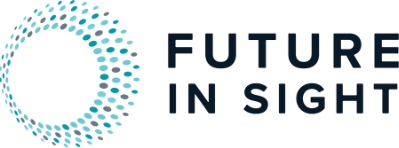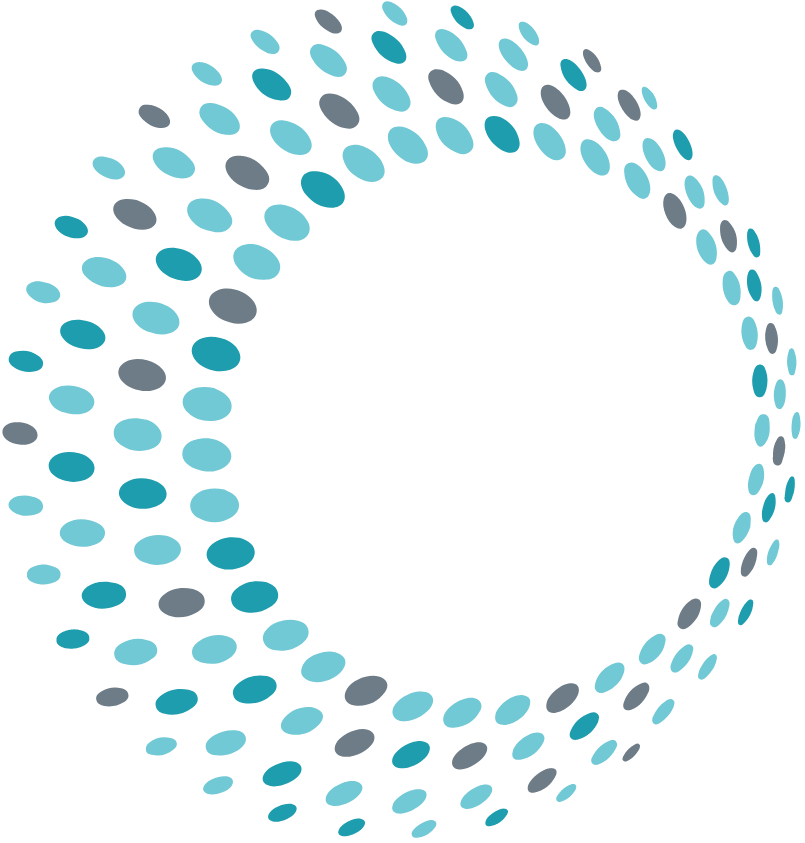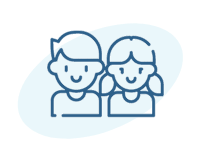For parents of a child with vision loss, there are many changing needs throughout a child’s young life. From getting help detecting or diagnosing a vision problem, to finding assistive technology or social activities that contribute to their child’s health and independence.
Infants and Toddlers (Birth-2)
Our Youth Services team includes experienced Early Supports and Services (ESS) providers for infants and toddlers. We specialize in helping young children who are blind or visually impaired to develop the sensory and compensatory skills they need for a successful start. We work with families and regional ESS programs to provide developmental assessment, Individual Family Service Plan (IFSP) development, and direct and consultative services.
We also assist families with the following:
- Attendance at eye doctor appointments
- Assistance in interpreting eye exam results
- Resource information for children’s services
- Groups and education for parents and families
- Counseling services for parents and families

School Age Children (3-21)
Our Teachers of Students with Visual Impairments (TSVIs), along with our Orientation & Mobility Specialists, provide specialized instruction in the Expanded Core Curriculum (ECC) for students who are blind and visually impaired. The ECC is comprised of necessary knowledge and skills for students with vision loss to be successful in schools, as well as postsecondary pursuits, due to their unique disability-specific needs. Our team is highly experienced in all nine areas of the ECC:
- Compensatory/functional academic skills
- Sensory efficiency skills
- Orientation & mobility
- Social interaction skills
- Independent living skills
- Recreation and leisure skills
- Career education
- Use of assistive technology
- Digitally accessible materials
- Self-determination skills
Our staff collaborates with case managers, classroom teachers, other service providers, and families to develop and implement the highest quality Individualized Education Program (IEP) for students who are three to 21 years old.
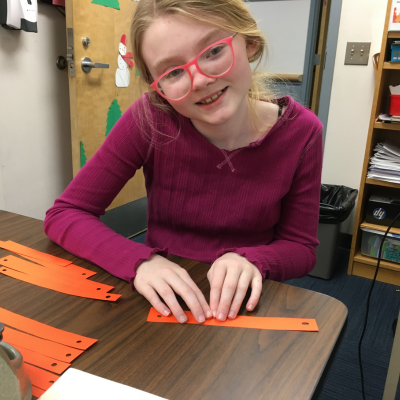
Transitioning Youth to Adult (16-22)
We provide workshops and individual sessions around transition for blind or visually impaired students in high school. Our goal is to increase successful transition outcomes by addressing the skills most often requiring direct instruction for students with visual impairments, including social skills for interviewing and for the workplace, independent living skills, orientation & mobility and self-advocacy and self-determination.
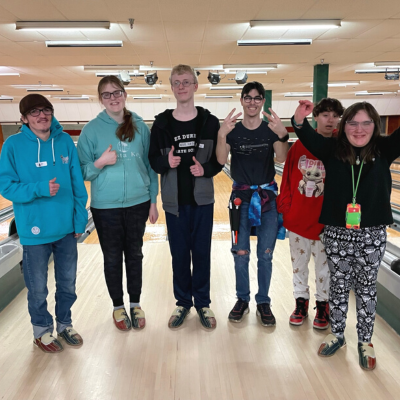
Empowering the Whole Child
We believe in providing a comprehensive approach to educating and supporting blind or visually impaired children of all ages. The nine areas outlined below are important components that have a significant impact on overall wellness.
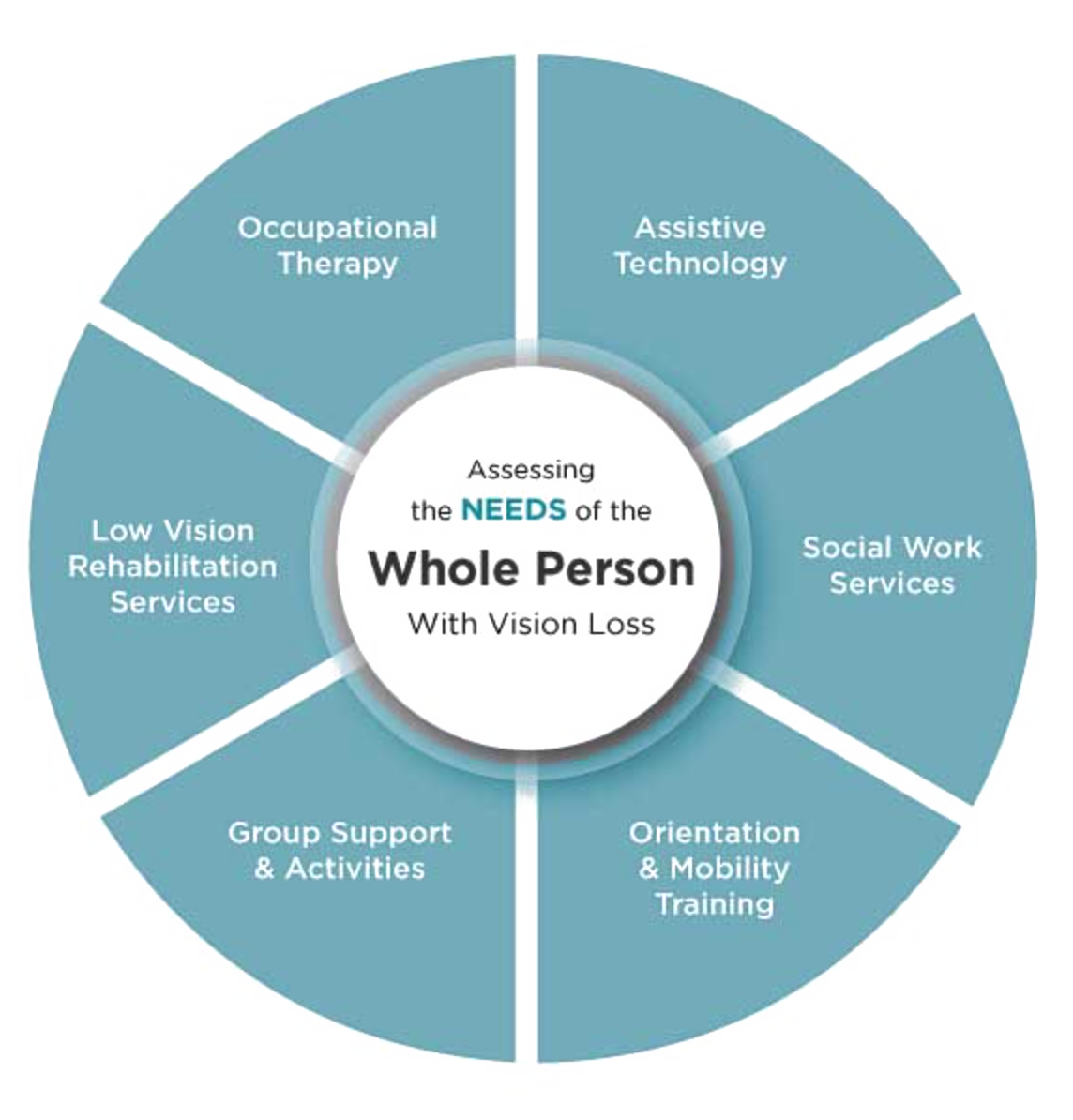
If your child could benefit from our services, contact us now.
